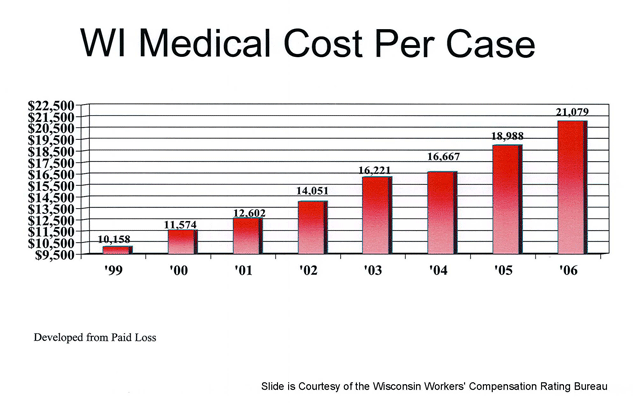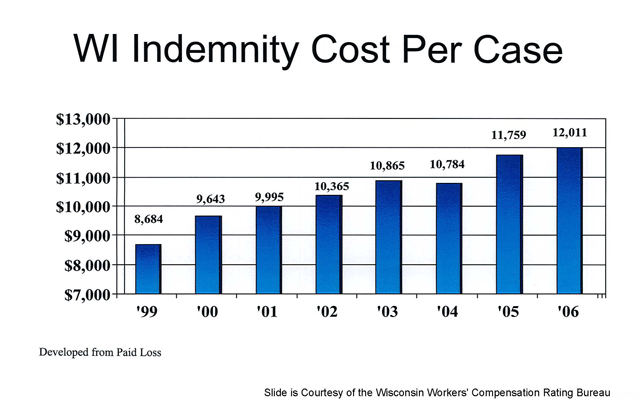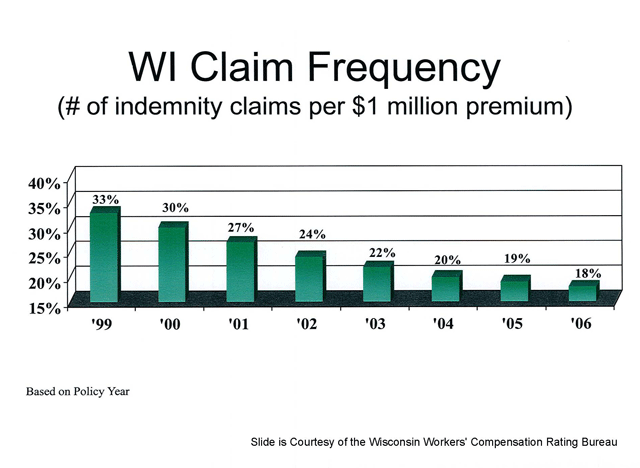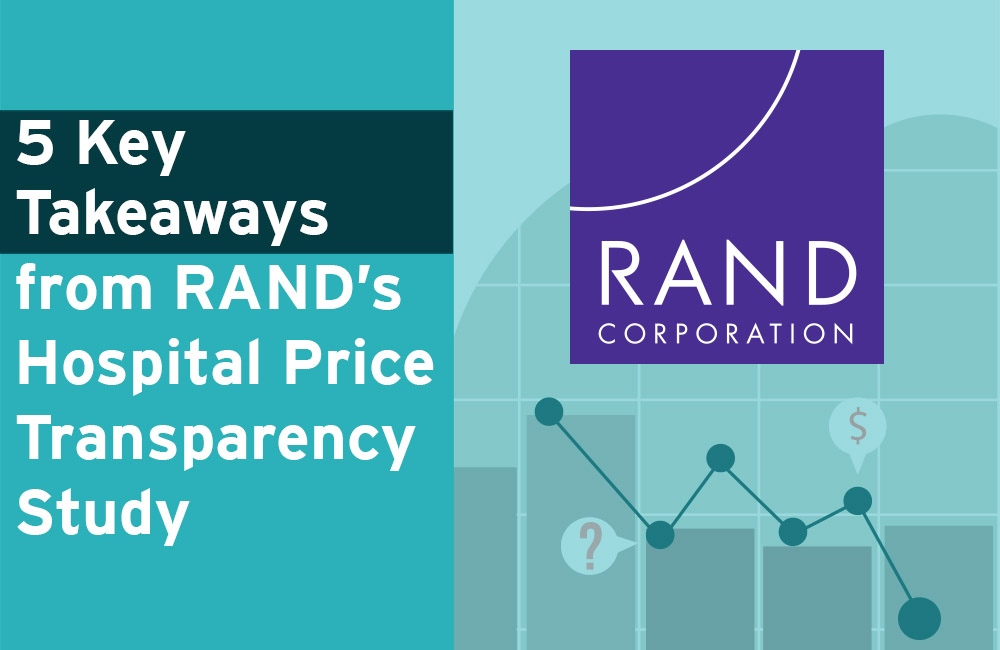
Legislature Will Consider Workers’ Compensation Reform
The Wisconsin Workers’ Compensation Advisory Council has wrapped up its work for the current legislative session by sending a comprehensive bill to the legislature that includes a fee schedule for medical prices under workers’ compensation (WC). The fee schedule represents the maximum payment allowed and would be set at average group health prices plus 10 percent starting in mid-2015.
The introduction of a WC fee schedule for consideration by legislature is a landmark moment. Wisconsin’s Advisory Council process requires management, labor and insurance representatives to compromise on an agreed upon bill. Medical cost control ideas, floated for consideration nearly every session, have historically failed to garner the support necessary to make it through the process.
The proposed fee schedule represents the first opportunity in many years to reduce medical costs, which is sorely needed according to these graphs from the Wisconsin Workers’ Compensation Rating Bureau. Alliance members and other businesses statewide strongly urged the Advisory Council to address medical cost inflation.
Bill Faces Challenges
The proposed bill faces many challenges, not the least of which will be to define “average group health prices” by 2015. While studies show that employers pay significantly more for medical services under WC versus a group health plan, pinpointing the average of allowable rates on the commercial side will be a challenge.
The lack of comparable data for WC and group health also makes it hard to predict how moving to this type of fee schedule will impact businesses. The not-for-profit Workers Compensation Research Institute of Massachusetts has issued “rough estimates” suggesting the proposal could reduce prices for office visits by 3 percent, for surgeries by 50 percent and for outpatient surgical episodes by 14 percent. But the institute warns the potential for overall costs savings – estimated to average around 20 percent – could be smaller if lower-cost providers modify their billing practices to charge the maximum allowed under the fee schedule.
Opposition from the provider community offers another challenge. Associations representing hospitals, doctors, chiropractors and others are strongly opposed to a fee schedule. As a result, the proposed bill will have a hard time gaining passage through the legislature – usually a rubber stamp process.
The final challenge for the bill may come from certain businesses, which may object to concessions that labor representatives serving on the Advisory Council negotiated before they would endorse a fee schedule. Changes include a $15 increase in the Permanent Partial Disability rate in each of the next two years and a new requirement that employers continue health coverage for a temporarily disabled worker for the duration of the employee’s healing period beyond the Family and Medical Leave Act (FMLA) 12 week requirement.
Read a summary of the total package here.
Share Your Thoughts on the Workers’ Compensation Reform
One additional consideration for Alliance members is that our network contracts already require that reimbursement for workers’ comp claims be the same as for claims paid through the health plan. Alliance members that self-fund workers’ compensation claims or whose carrier will use our network already receive the benefit of lower WC pricing. Employers that do not use The Alliance network for WC are expected to see cost reductions due to the fee schedule.
[box]
Learn More About Workers’ Compensation Reform
- New Proposals Aim at Workers’ Compensation Reform in Wisconsin
- Workers Compensation Bill is Signed into Law
- Visit our Health Policy section for more information about health reform.
[/box]











